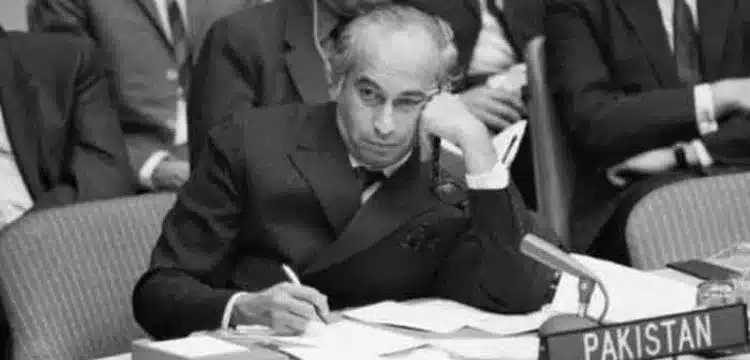[vc_row][vc_column][vc_column_text dp_text_size=”size-4″]
Zulfikar Ali Bhutto, the former Prime Minister and leader of the Pakistan People’s Party, is being remembered on the 45th anniversary of his death. Known for his populist politics, Bhutto was executed on April 4, 1979, following a controversial trial, a significant and contentious event in South Asian history.
Even four and a half decades after his passing, Bhutto’s legacy endures, serving as inspiration to many for his role as a dissenting voice during challenging times.
Read more: PPP Candidate Zulfiqar Shah Wounded In Mirpurkhas Shooting
The PPP is organizing prayers at the district level to commemorate his death anniversary, while a public gathering will be held at Garhi Khuda Bux, the location of Bhutto’s mausoleum.
Bhutto was renowned for challenging the entrenched power structures of wealthy landowners and bureaucrats that dominated South Asian politics during military regimes. He campaigned on promises of providing basic necessities to the masses, often engaging directly with voters in markets and remote areas.
A graduate of Oxford and a trained barrister at Lincolns Inn, Bhutto entered politics as a cabinet member under Iskander Mirza and later served in various ministries during President Ayub Khan’s military rule. He founded the Pakistan Peoples Party in 1967 and subsequently served as the country’s 4th President until 1973, when he became Prime Minister following the unanimous approval of a new constitution.
However, his tenure was cut short in 1977 when he was ousted in a coup by then Army Chief Zia-ul-Haq, who subsequently had him executed after a controversial trial on charges of murder.
[/vc_column_text][/vc_column][/vc_row]











